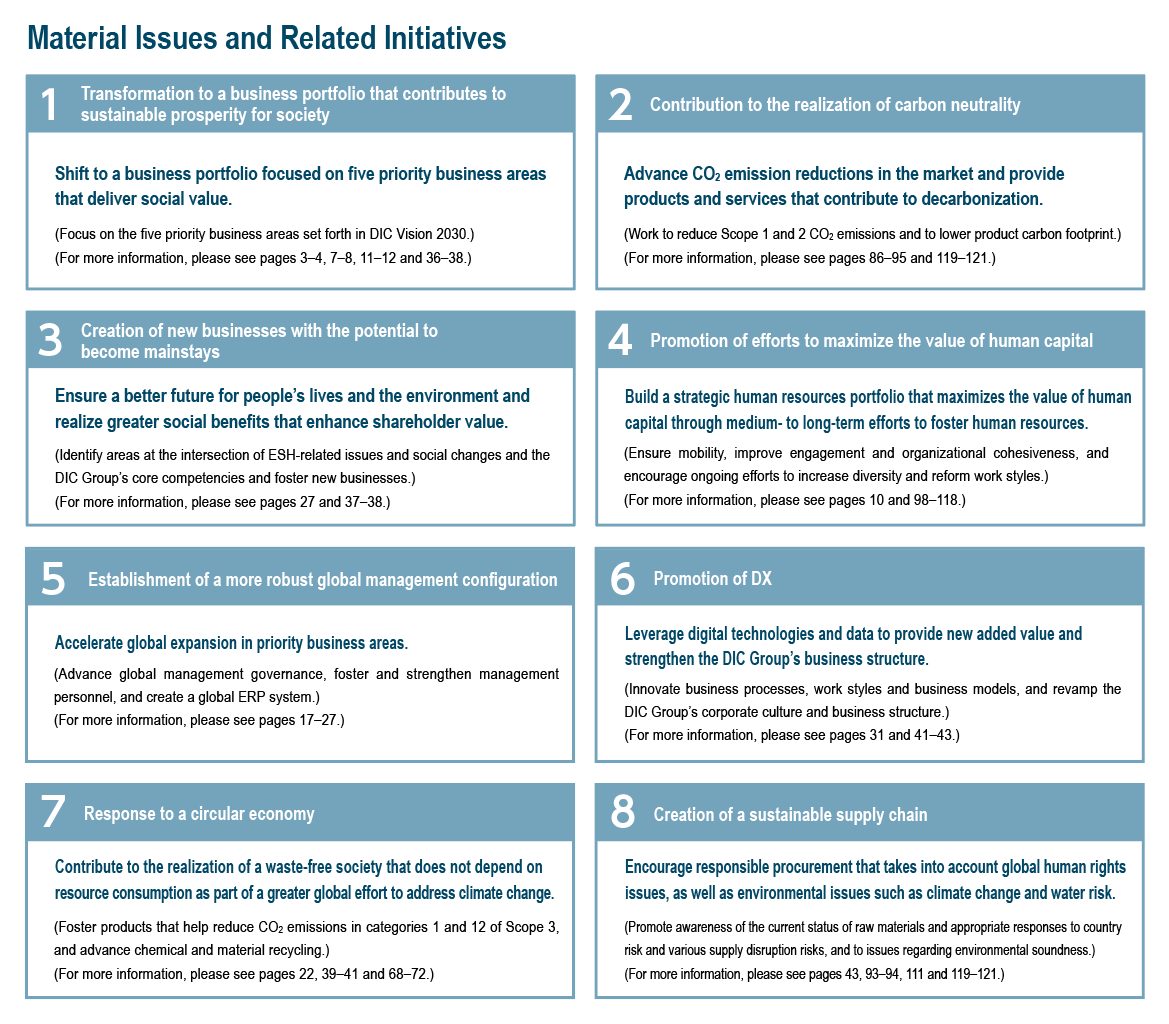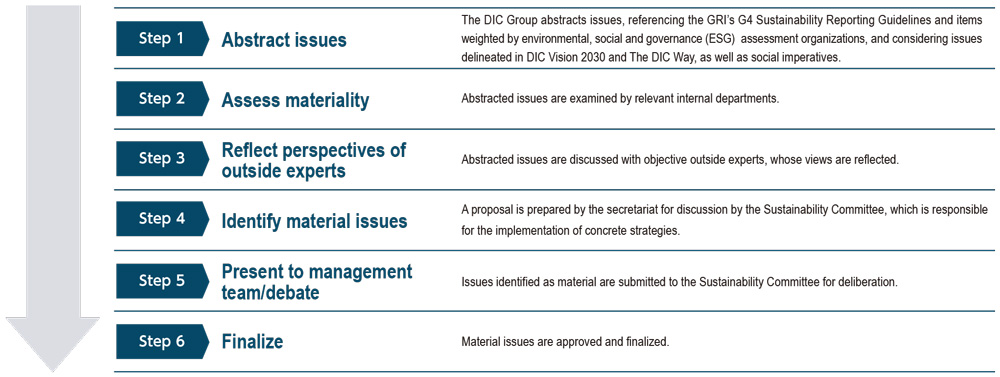Overview of Materiality
Material Issues and Related Initiatives

Identifying Material Issues

Active Development of Businesses that Contribute to Sustainability
In fiscal year 2021, the Colors & Effects pigments business joined the DIC Group, further reinforcing the Group’s diverse human resources portfolio and global network. Backed by a stable global management framework that capitalizes on these competitive strengths, Group employees around the world are working to help address global social imperatives such as climate change and marine plastics, establishing the Group’s reputation as a provider of solutions, in line with its fundamental objective of evolving as a unique global company that is trusted by society.
Introduction of Electric Power Generated Using Renewable Energy
In fiscal year 2022, the DIC Group’s 36 sites in Japan, which include corporate headquarters, branches, plants and a research laboratory, resolved to introduce green power, that is, purchased electric power generated using renewable energy, as well as to introduce Green Power Certificates and Non-Fossil Certificates, all of which are recognized as having environmental value in terms of reduced CO₂ emissions. DIC’s corporate headquarters completed its switch to electric power generated using renewable energy in November 2022. Other sites began changing over in April 2023. The Group expects this to support a reduction in annual CO₂ emissions of approximately 77,000 tonnes, equivalent to roughly 38% of CO₂ emissions (Scope 1 and 2) from its sites in Japan. The DIC Group aims to achieve carbon neutrality by fiscal year 2050. To this end, the Group will continue working actively to reduce its CO₂ emissions by installing energy-saving equipment, undertaking energy-saving initiatives and employing renewable energy at suitable sites.
Development of Waterborne Anode Binder for LiBs
In the period under review, DIC announced the development of WATERSOL®-LB, a waterborne anode binder for lithium-ion batteries (LiBs). As a waterborne product with a low environmental impact, WATERSOL®-LB helps prolong battery life by, among others, suppressing expansion and ensuring low internal resistance.
Going forward, the Company will continue contributing to sustainable prosperity for society through the development and provision of sustainable products that respond to social imperatives by helping decrease energy consumption and environmental impact.
Building of a Globally Optimized Digital SCM Platform
DIC recently built a digital supply chain management (SCM) platform that leverages advanced digital technologies to optimize supply chains in its core businesses. Plans are to initially introduce the new platform in certain markets and sectors of the color materials and performance materials businesses and to achieve full deployment worldwide by fiscal year 2025. This digital SCM platform will facilitate the elimination of structural and regional boundaries in supply chains and secure the organizational capabilities necessary to grow businesses on a global scale. Use of the platform to analyze potential demand fluctuations from multiple perspectives will also elevate services for customers, as well as the DIC Group’s ability to respond to emerging needs, thereby driving the further improvement of customer value.
Exploration of the Production of Biomass Polystyrene
DIC reached an agreement with Idemitsu Kosan Co., Ltd., to build a new biomass plastics supply chain, as well as to begin exploring the production of biomass polystyrene. Both DIC and Idemitsu Kosan recognize stepping up efforts to address climate change and advancing the sustainable, circular use of resources as key management responsibilities, prompting the decision to explore production of low environmental impact polystyrene. The two companies have agreed on a basic policy of contributing to the reduction of CO₂ emissions in the plastics industry for the new supply chain they will build. Through this partnership, the two companies will continue to strengthen their cooperation with customers and suppliers, with the goal of ensuring the new supply chain’s carbon neutrality and contributing to a circular economy.
Other Management Issues
In the process of identifying material issues, the DIC Group also recognized the following as management issues with the potential to significantly impact its management. The Group will continue working to address/strengthen its response to these issues through its business activities.


